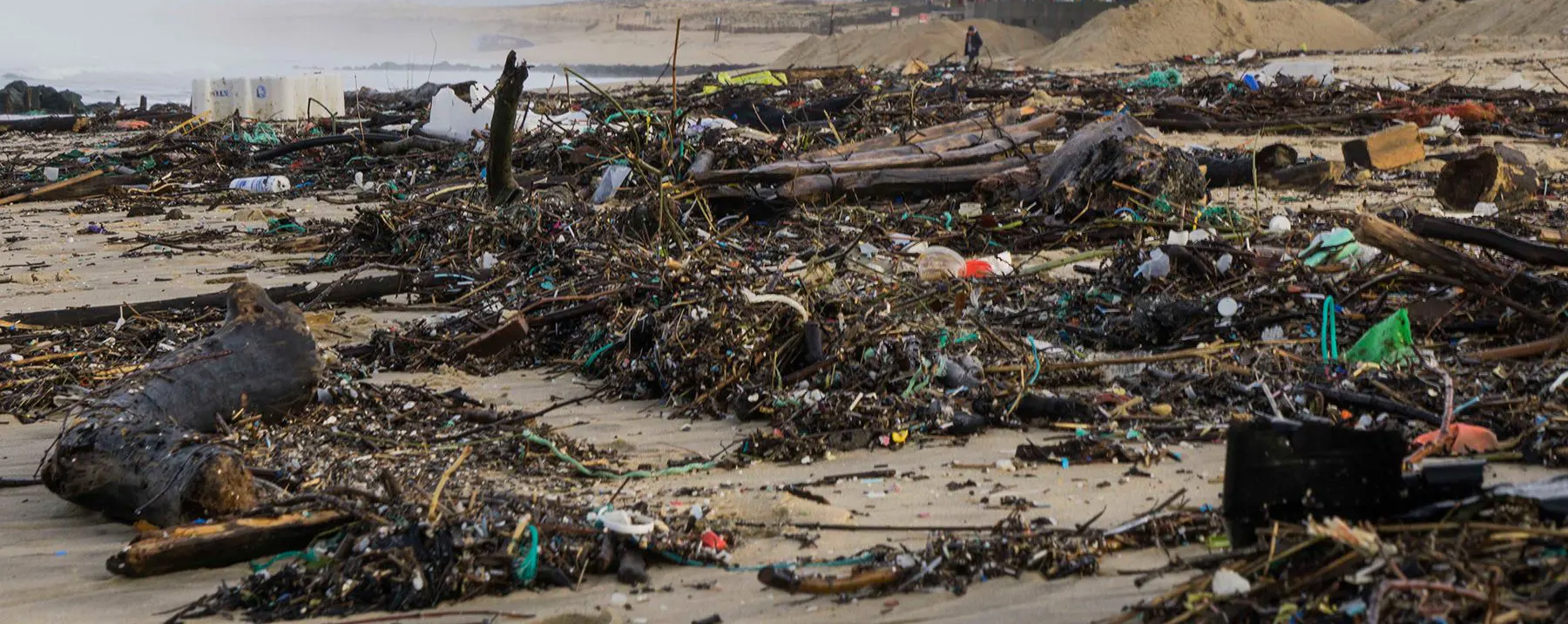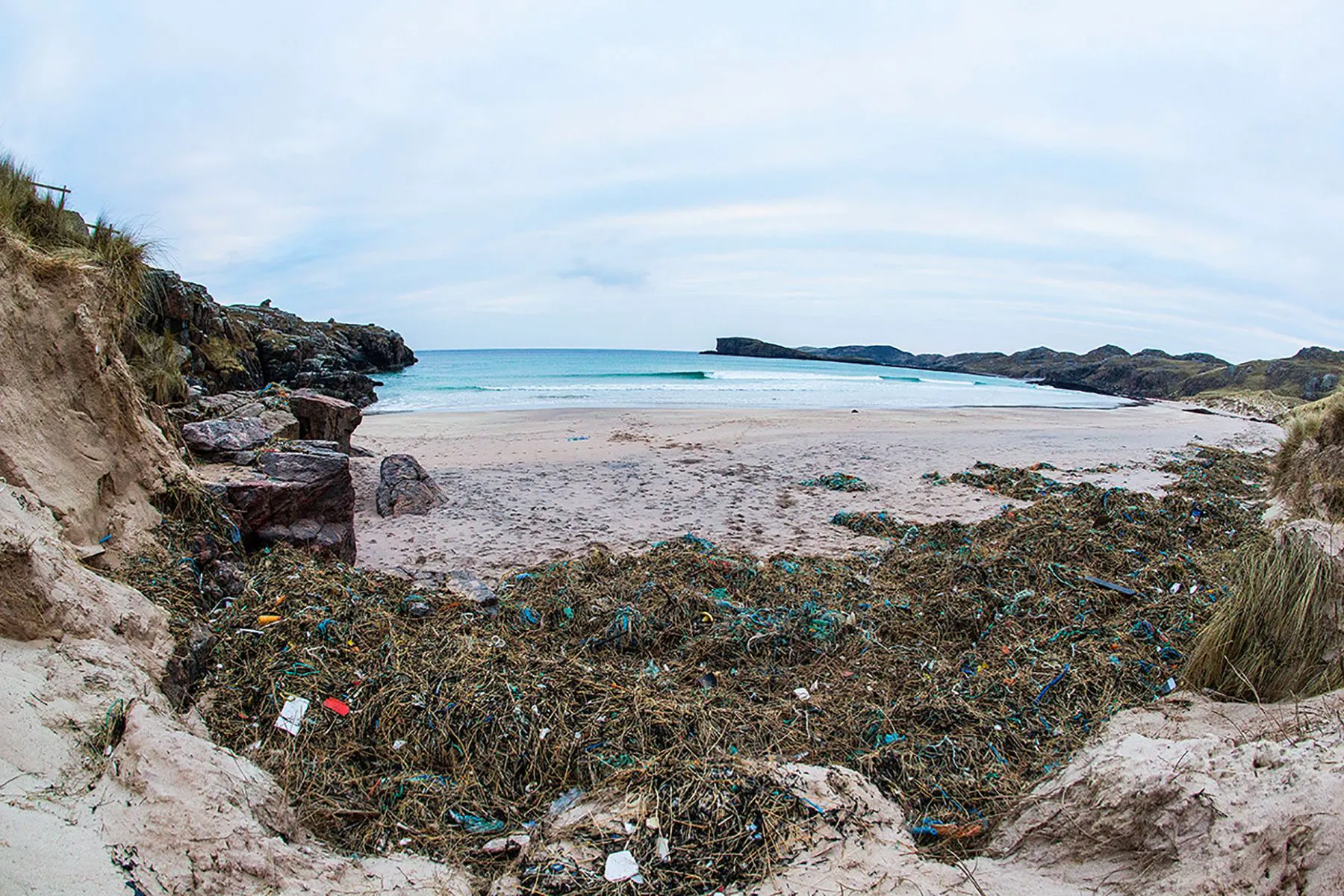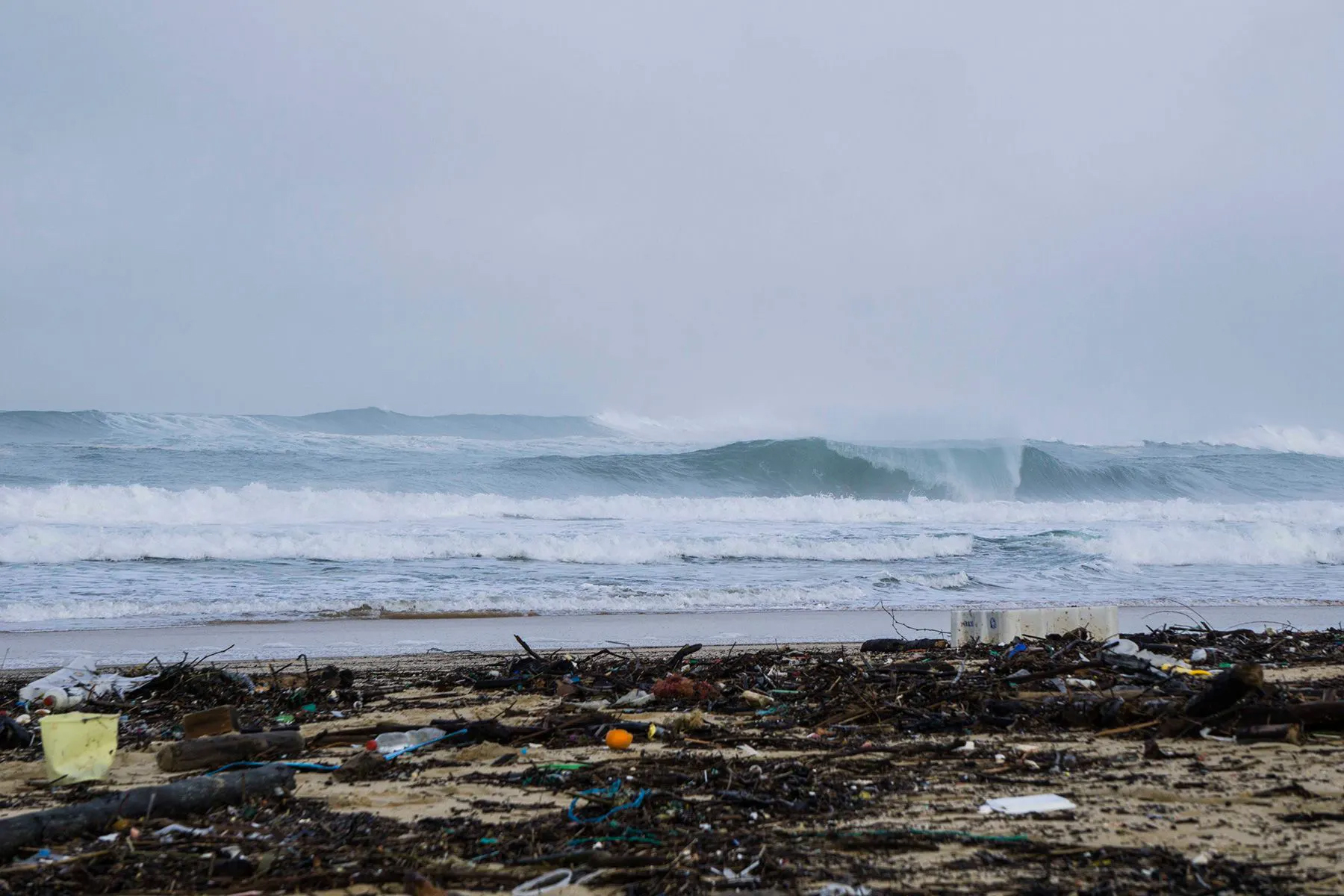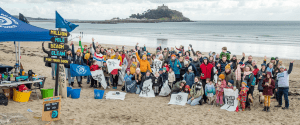
The Emerging Science Behind Beach Cleans
We all know how important beach cleans are, but up until last year there was no hard evidence to what degree they made a difference.
It has been well documented, anecdotally and by academic institutions, that carrying out cleans on the beach, rivers or lakes are great for our general well-being. The act of doing something positive for the environment, whilst being part of a community and being outdoors is fantastic for individual and group mental health. It’s one of the main reasons thousands of people across the globe get together and work hard for their local blue space.

A collector beach in North West Scotland. Every winter storm brings debris ashore, both organic and plastic.
As an organisation, we also know how important beach, river, lake bank and street cleans can be when it comes to understanding the source of plastic pollution. Our annual Brand Audit has meant we now have years of data about the origins and trends of where plastic pollution originates. It helps inform us when it comes to demanding a Deposit Return Scheme and launching campaigns to ban items such as disposable vapes. Now though, there is hard evidence that beach cleans are even more important for our environment.
Around the Norwegian coastal town of Bergen, over the last six years, since a dead whale washed up with a stomach full of plastic, the locals have picked up over 9,000 tonnes of plastic, removing it from the environment for good. The coast around Bergen is made up of islands and fjords, and on one of these islands, scientists from Norwegian research group Norce surveyed the plastic levels before and after cleaning.
They found one significant piece of evidence. Following a year of regular cleaning and picking up of large pieces of plastic debris, there was a decrease of microplastics by an incredible 99.5%. They theorised that by removing the larger items like bottles and bags, there was no longer a supply of plastic that was either breaking down mechanically due to wave action or degrade in warm shallow coastal water due to sunlight. Therefore, with no larger plastic items available, there was a huge reduction in microplastics, which are most damaging to the marine ecosystem. Whilst this is just a small piece of scientific evidence, it is more than significant.

If we can remove large plastic items, we can stop wave action and sunlight from breaking it down into microplastics. This can has been shown to have significant affects on local microplastic concentrations.
This shows that by cleaning an area, whether it is by the coast, river, lake or any open spaces, we are helping by reducing the amount of plastic that can degrade into its most harmful form. When plastic breaks down to these tiny and microscopic particles, it becomes incredibly hard to remove. On a global scale, this may seem like we’re just scratching the surface, but every local clean we do, every large plastic item we remove, removes the possibility of millions of smaller items entering the ecosystem, and so every clean does make a difference.
If you would like to get involved, why not sign up to the Million Mile Clean and either join an existing clean on our map, or register your own clean. You can do a small private clean, or host a big public event. Choose whichever location across the UK suits you and we’ll send you free cleaning equipment for up to 30 people.

